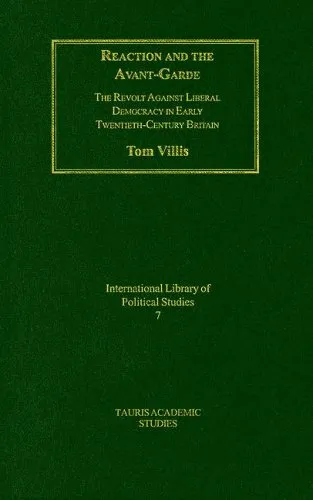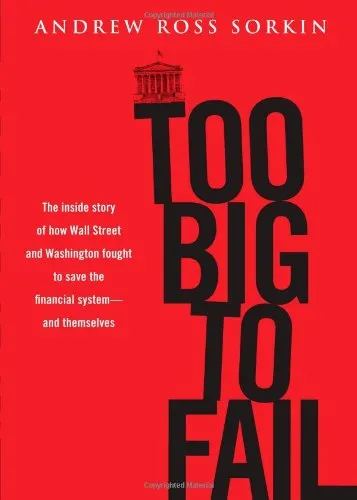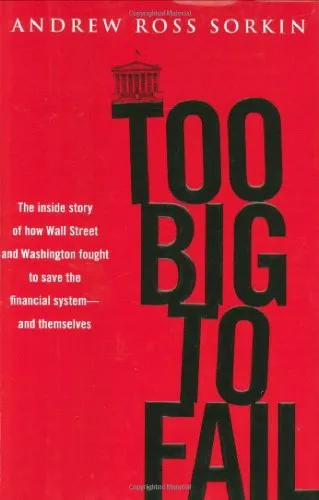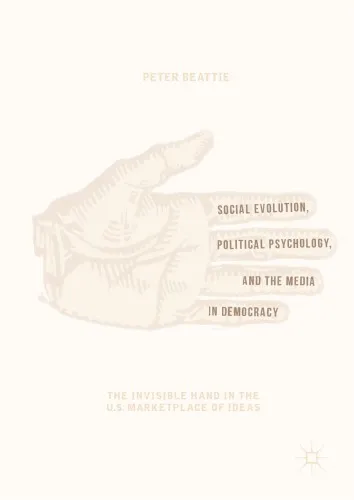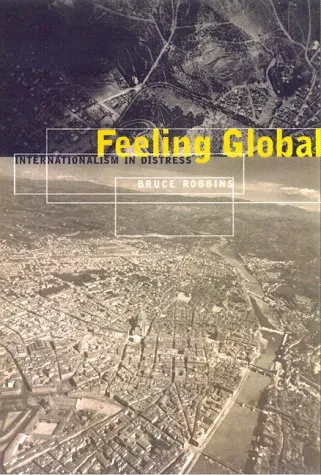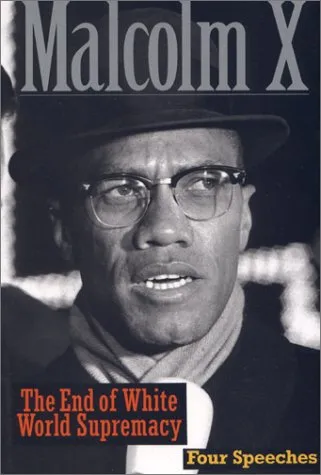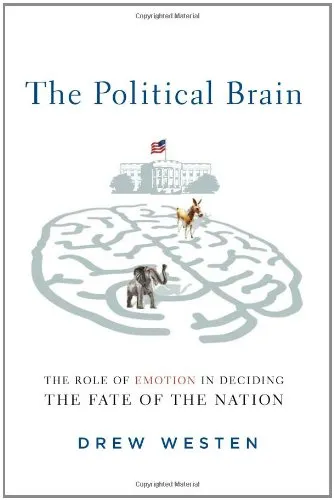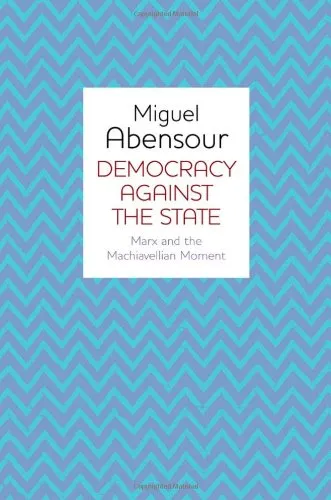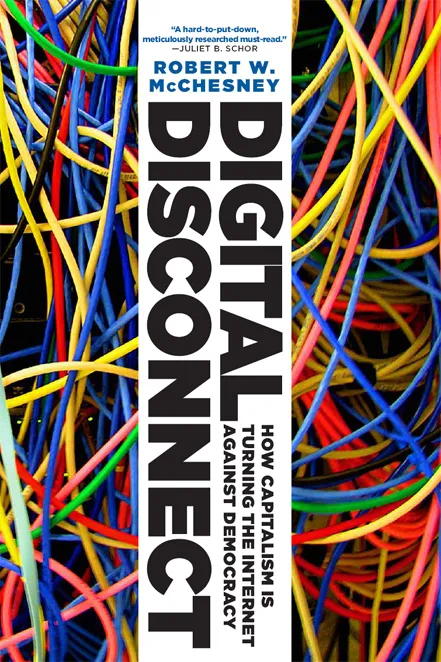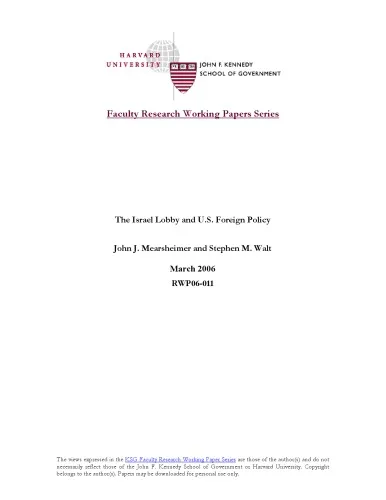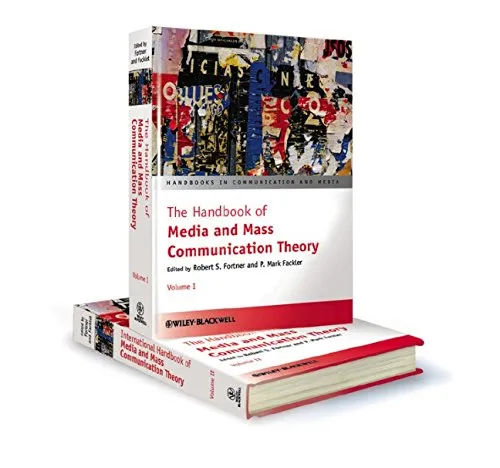Reaction and the Avant-Garde: The Revolt Against Liberal Democracy in Early Twentieth-Century Britain (International Library of Political Studies)
4.0
بر اساس نظر کاربران

شما میتونید سوالاتتون در باره کتاب رو از هوش مصنوعیش بعد از ورود بپرسید
هر دانلود یا پرسش از هوش مصنوعی 2 امتیاز لازم دارد، برای بدست آوردن امتیاز رایگان، به صفحه ی راهنمای امتیازات سر بزنید و یک سری کار ارزشمند انجام بدینکتاب های مرتبط:
معرفی کتاب
کتاب Reaction and the Avant-Garde: The Revolt Against Liberal Democracy in Early Twentieth-Century Britain نوشته تام ویلیس، یکی از مهمترین آثار در زمینه بررسی واکنشها و مقابلههای فکری و هنری در برابر دمکراسی لیبرال در اوایل قرن بیستم بریتانیاست. این کتاب در مجموعه International Library of Political Studies منتشر شده و به تحلیل پیچیدهای از ارتباط میان سیاست، فرهنگ و هنر در یک دوره پرتلاطم تاریخی میپردازد.
خلاصهای جامع از کتاب
این اثر به بررسی نحوه تعامل و درگیری میان دو نیروی مهم فکری در بریتانیا، یعنی تفکر محافظهکارانه یا واکنشی (Reactionary) و جنبشهای افراطی هنری یا Avant-Garde، پرداخته است. در این کتاب، نویسنده نشان میدهد که چگونه هنرمندان، نویسندگان و متفکران این دوره نه تنها با ایدههای دمکراسی لیبرال مخالفت کردند، بلکه به دنبال بازتعریف سیاست در بستری بسیار متفاوت بودند. ویلیس با نگاهی تحلیلی و تاریخی ابعاد مختلف این مخالفتها را کاوش میکند و ارتباط آنها با تغییرات اجتماعی و سیاسی اوایل قرن بیستم را توضیح میدهد. این دوره زمانی شامل ظهور جنبشهای ملیگرایانه، ارتقای ایدئولوژیهای محافظهکارانه و چالشهایی علیه ارزشهای مدرنیته است.
تام ویلیس در کتاب خود شکاف میان ارزشهای کلاسیک مدرنیته و دیدگاههای ضدلیبرالی برخی از گروههای خاص، از جمله هنرمندان و متفکران برجسته، را روشن میکند. این کتاب در عین حال که به بررسی زمینههای تاریخی این مخالفتها میپردازد، درک عمیقتری از ارتباط بین آثار هنری و رویدادهای سیاسی ارائه میدهد.
نکات کلیدی کتاب
- تحلیل دقیق رابطه میان هنر Avant-Garde و سیاستهای ضدلیبرالی در بریتانیا.
- بررسی تاریخی دلایل مخالفت فکری با دمکراسی لیبرال در اوایل قرن بیستم.
- ارائه نمونههای بیشماری از تأثیر ایدههای محافظهکارانه بر آثار هنری برجسته.
- شناسایی نقش جنبشهای ملیگرایانه و اندیشههای ناسیونالیستی در شکلدهی به این مخالفتها.
- ارائه پژوهشی عمیق در مورد تفکر سیاسی و فرهنگی قرن بیستم بریتانیا.
جملات معروف از کتاب
“The avant-garde was not always progressive; it could be reactionary in its revolt against the perceived banalities of liberal modernity.”
“The early twentieth century was a battleground of ideas where art and politics intertwined in unexpected ways.”
“To study reactionary thought is not to endorse it but to understand its significance in shaping historical and cultural moments.”
چرا این کتاب اهمیت دارد؟
این کتاب از دو جنبه اصلی دارای اهمیت است. نخست، این کتاب پلی میان هنر و سیاست میزند و به ما نشان میدهد که چگونه تفکرات سیاسی میتوانند هنر و ادبیات را شکل دهند. دوم، این اثر با بهرهگیری از تحلیل تاریخی و فرهنگی عمیق، فضای فکری اوایل قرن بیستم بریتانیا را به خوبی به تصویر میکشد. این دوره زمانی به دلیل تغییرات سریع اجتماعی و ظهور ایدئولوژیهای جدید، بسیار حیاتی است. در این میان، مطالعه ویلیس به ما کمک میکند تا بفهمیم چگونه جنبشهای Avant-Garde و تفکرات ضددمکراتیک توانستند به فرهنگ و سیاست آن دوران شکل بدهند.
این کتاب علاوه بر اهمیت پژوهشی، برای دانشجویان، محققان و علاقهمندان به تاریخ سیاسی، فرهنگی و مطالعات هنر جذابیت خاصی دارد. درک نحوه مواجهه هنرمندان با سیاستها و ایدئولوژیهای زمانهشان مسئلهای است که همچنان در مطالعات معاصر هم مطرح است.
Introduction to "Reaction and the Avant-Garde: The Revolt Against Liberal Democracy in Early Twentieth-Century Britain"
Written by Tom Villis, Reaction and the Avant-Garde: The Revolt Against Liberal Democracy in Early Twentieth-Century Britain provides a compelling exploration of the intersection between political thought and artistic movements in early 20th-century Britain. The book examines how avant-garde art and reactionary political ideologies shared a surprising synergy in their rejection of liberal democratic values and what this reveals about British intellectual life during a turbulent period of history.
This work offers fresh insights into the interplay between radical political discontent and experimental cultural forms. By analyzing prominent intellectual figures and their engagement with both reactionary politics and avant-garde aesthetics, the book challenges simplistic notions of political and cultural divides. Villis carefully unearths how both movements, despite appearing ideologically opposed on the surface, united in their critique of modernity's liberal democratic consensus.
Detailed Summary of the Book
The book unfolds through an examination of key individuals and movements in early 20th-century Britain who rejected liberal democracy and embraced radical alternatives as solutions to societal problems. Tom Villis begins by contextualizing the period, exploring how the fallout from the First World War and the emergence of new intellectual movements created fertile ground for both right-wing reactionary ideologies and avant-garde artistic practices.
Villis offers deep insight into thinkers like Wyndham Lewis, T.S. Eliot, and others, highlighting their complex relationship with political conservatism and cultural experimentation. The narrative explores how these figures sought to revive hierarchical and authoritarian values while simultaneously engaging with modernist strategies for art and literature. The inherent paradox within their ideologies—rejecting modernity yet using modernist tools to critique it—forms a key theme in the book.
The book meticulously dissects how the avant-garde's revolutionary ethos resonated with reactionary calls to dismantle the so-called decadence of liberal democracy. Villis breaks down concepts such as elitism, aesthetics, and anti-rationalism, tracing their influence on the intellectual discourse of the time. The chapters are rich in analysis and demonstrate how avant-garde experimentation in art mirrored the intellectual experimentations of reactionary ideologies.
Finally, the book draws connections between these historical ideas and their enduring influence on contemporary political and cultural discourse, warning of how reaction and experimentation can resurface in unexpected ways.
Key Takeaways
- The rejection of liberal democracy in early 20th-century Britain was fueled not only by political reactionaries but also by avant-garde artists.
- Intellectual figures like Wyndham Lewis and T.S. Eliot merged cultural and political critique, blurring the lines between artistic innovation and reactionary politics.
- The avant-garde and reactionaries shared a distrust of modernity, rationalism, and mass culture, albeit from differing perspectives.
- The book provides a nuanced understanding of how ideological movements can converge in their critique of the prevailing order despite apparent contradictions.
- It invites readers to consider how art and politics are deeply interwoven, influencing each other in unexpected ways.
Famous Quotes from the Book
"The avant-garde, in its effort to subvert established norms, found common ground with the reactionary’s disdain for modernity."
"The revolt against liberal democracy was not a singular force but a confluence of cultural and political energies seeking a radical departure from the status quo."
"In rejecting mass appeal, both reactionaries and the avant-garde revealed their shared elitism, uniting two ostensibly opposed traditions."
Why This Book Matters
Reaction and the Avant-Garde stands out as a critical work for those interested in the relationships between political ideologies and cultural movements. During a time of global instability and shifting societal norms, the book sheds light on how intellectuals reconciled—or failed to reconcile—their cultural ambitions with their political beliefs. It underscores the importance of examining history with nuance, avoiding binary frameworks, and recognizing the complexities of individual thinkers and movements.
Tom Villis not only contributes to the study of early 20th-century Britain but also provides a lens for understanding contemporary reactions against liberal democracy and modern culture. By exploring how intellectual and cultural elites rejected democratic ideals, the book resonates with modern debates about democracy’s perceived failings and the rise of anti-liberal ideologies in politics and media.
This book is essential reading for scholars of political thought, cultural studies, and British history, as well as for anyone seeking a deeper understanding of how art and politics have coalesced during moments of societal upheaval. Its insights continue to echo in today’s age of political polarization and cultural experimentation.
دانلود رایگان مستقیم
شما میتونید سوالاتتون در باره کتاب رو از هوش مصنوعیش بعد از ورود بپرسید
دسترسی به کتابها از طریق پلتفرمهای قانونی و کتابخانههای عمومی نه تنها از حقوق نویسندگان و ناشران حمایت میکند، بلکه به پایداری فرهنگ کتابخوانی نیز کمک میرساند. پیش از دانلود، لحظهای به بررسی این گزینهها فکر کنید.
این کتاب رو در پلتفرم های دیگه ببینید
WorldCat به شما کمک میکنه تا کتاب ها رو در کتابخانه های سراسر دنیا پیدا کنید
امتیازها، نظرات تخصصی و صحبت ها درباره کتاب را در Goodreads ببینید
کتابهای کمیاب یا دست دوم را در AbeBooks پیدا کنید و بخرید
1427
بازدید4.0
امتیاز0
نظر98%
رضایتنظرات:
4.0
بر اساس 0 نظر کاربران
Questions & Answers
Ask questions about this book or help others by answering
No questions yet. Be the first to ask!
